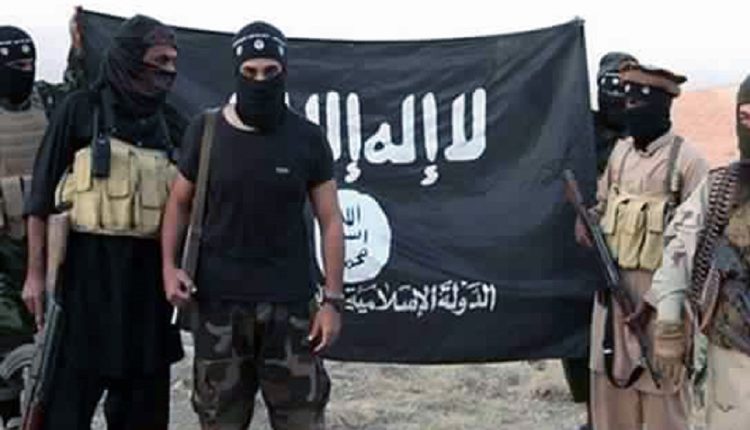To fight extremism every religion should do it`s share
RELIGIONS NEWS AGENCY (REDNA) – Terrorism and extremism as one of the biggest current issues of the world have affected many all around the world. The black chapter but is accusations made against all Muslims. This is clear that not all Muslims are associated with extremisms` groups.
Chicago Sun Times in an article published on Nov 12, 2022 wrote the moderate members of Muslims community should speak up and clarify the relationships between Muslims and extremisms` groups.
The writer pointed out for decades, Muslims have been unfairly singled out and asked where the “moderate” members of their community are and why they don’t speak up. Now it’s time for a lot of those who’ve been pointing fingers to look in the mirror and ask themselves the same question.
In some part of the article the writer says violence is not just associated with Muslims and the extremist’s member of other faiths can cause violence, too.
He ask the question of “Where are the moderates of Christianity, Judaism, Hinduism, and Buddhism?
The question might seem strange to everyone, except Muslims. We Muslims have been asked this question repeatedly, at least since 9/11, then a decade later with the rise of ISIS. There were two insinuations in this question, both offensive: that any normal human being would find violence repulsive, but among Muslims, only the “moderates” would — and those “moderates” were an anomaly among Muslims.
There was also, however, a genuine plea from people looking to feel safe at a time when news reports were filled with stories of Muslim violence — as though Muslims were more violent than others.
Now, around the world, we are watching violence from extremists of other faiths.
Buddhists conduct horrific organized violence against Rohingyas in Myanmar. Hindus conduct pogroms against Muslims, Catholics, and Sikhs in India. Jews continue to seize the homes of Palestinians. Christian preachers align themselves with a most un-Christian Donald Trump, and while some might argue that Christian extremists have been peaceful even at their most radical, remember that when George W. Bush launched the invasion of Iraq that resulted in thousands of deaths, he repeatedly invoked his Christianity.
So, where are the moderate Buddhists, Hindus, Jews, and Christians, to stop the atrocities committed by their coreligionists? Is it fair to assume they hate violence?
The roots of radicalism
The writer continues as in the past, whenever a violent act was committed by a Muslim in this country or thousands of miles away, many non-Muslims would accuse the larger Muslim community of ignoring the problem of extremism.
The truth is, extremists represent a very small percent of the world’s 2 billion Muslims; and for most Muslims, personal challenges, including loss of faith, are more pertinent.
Second, in most cases, extremism is more of a mental health issue than of theology: Lone wolves might say Islam pushed them toward their detrimental actions, when the underlying issue is mental illness. Then, there are the cases of entrapment, when an FBI informants posing as radicals infiltrates our mosques and goad young men into saying things they wouldn’t have said otherwise, embittering the Muslim community.
Nevertheless, I have been involved in multiple cases involving de-radicalizing individuals. The patterns were almost always the same. If the person was rational — often they were not — they were found to be well-intentioned and seeking some semblance of integrity in their religious pursuits. But because they lacked training in the complexities of scriptural interpretation, they resorted to simplistic readings, as though the world is easy to organize between good and evil. They embraced the false rhetoric that their coreligionists were sell-outs to a godless system, afraid to stand for justice.
Theology, however, was never the real issue. The real issue hidden under the mask of theology was always despondency.
On campus, I had a conversation with a diplomat speaking off the record about the problems of extremism in his country. I asked him what was causing it. Extremism has always had a presence in religious history, but now we witness a surge across every religious community.
“Globalization,” he said.
Speaking up is essential
In final part of the article we read: extremists find themselves powerless against a world that races past them, especially when it comes to economics. They do not know where to turn for comfort. In terror, they follow preachers who exploit them. These charlatans speak with bravado, positioning themselves as renegade voices against phantom dangers. They point fingers at minority and marginalized populations as the supposed causes of social upheaval.
Such tactics are not new. These are the behaviors of cult leaders, which the world has known as long as it has known religion. Gregory Stanton’s “Ten Stages of Genocide” outlines the steps toward such extermination and the steps necessary to divert it. Trump’s legislation against Muslim immigrants, history of rhetoric against Jews, and links with Christian nationalism all hint that Jan. 6 was just the beginning of potentially more violence.
In my work, the de-radicalization process has been consistent: offering compassion, which radicals need to deal with their fears of the world, and sound education to counter destructive ideology. Most extremists can be de-radicalized. It takes a long time, but it can be done.
Each major religion has long traditions of peaceful community building and personal reform. Each major religion also has extremists.
While we Muslims must continue within our own societies, the burden is now on each of you — Christian, Jewish, Hindu, and Buddhist — to speak up, and rein in your own.
If you do not, what can we expect but more violence?

